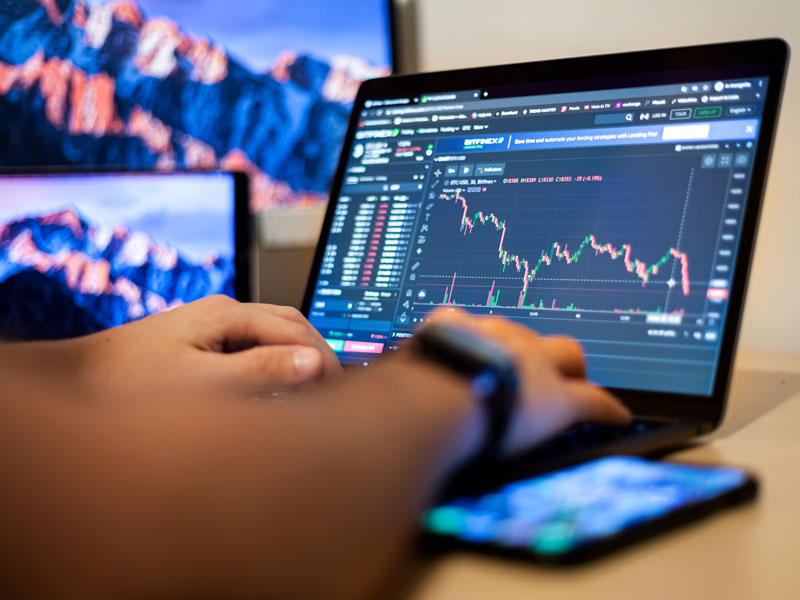
Mastering Forex Trading: Strategies for Success
Forex trading, often referred to as currency trading, involves buying and selling currencies on the foreign exchange market. It is the largest financial market in the world, boasting an average daily trading volume of over $6 trillion. This article explores various trading strategies, tips, and insights to help traders succeed in the dynamic world of Forex. Visit trading in forex trader-maroc.com for more resources and expert analysis.
Understanding the Forex Market
The Forex market is decentralized and operates 24 hours a day, five days a week. Unlike stock markets, Forex does not have a physical location; instead, trading occurs over-the-counter (OTC). Currencies are traded in pairs, such as EUR/USD or GBP/JPY, indicating the value of one currency relative to another. Understanding how these pairs work is fundamental for successful trading.
Key Terminology in Forex Trading
Before diving into trading strategies, it’s essential to familiarize yourself with key terminology:
- Currency Pair: The quotation of two different currencies, where one is bought and the other is sold.
- Pips: Short for “percentage in point,” it is the smallest price move that a given exchange rate can make based on market convention.
- Lot: A standard unit of measure used in Forex trading. A standard lot is 100,000 units of currency, while mini and micro lots contain 10,000 and 1,000 units, respectively.
- Leverage: The ability to control a large position with a relatively small amount of capital. Leverage can magnify both profits and losses.
Trading Strategies: Finding Your Edge
Successful Forex traders use various strategies to maximize their returns. Here are some popular approaches:
1. Fundamental Analysis

Fundamental analysis involves evaluating a country’s economic indicators, such as GDP, employment rates, and interest rates, to predict currency movements. Traders who use this approach typically look for correlations between economic health and currency strength.
2. Technical Analysis
Technical analysis focuses on historical price data to forecast future price movements. Traders use charts, patterns, and technical indicators (like moving averages and RSI) to identify trends and entry/exit points in the market.
3. Scalping
Scalping is a short-term trading strategy where traders aim to profit from small price changes during the day. Scalpers make many trades in a single day, relying on quick execution and tight spreads to realize profits.
4. Swing Trading
5. Position Trading
Position trading is a long-term strategy where traders hold positions for months or even years, based on long-term market trends and economic forecasts. This approach is less concerned with short-term volatility and focuses on the overall direction of the currency pair.
Risk Management: A Vital Component

Regardless of the trading strategy employed, effective risk management is crucial for long-term success in Forex trading. Here are a few strategies to mitigate risk:
- Setting Stop-Loss Orders: By placing a stop-loss order, traders can automatically close a position at a predetermined loss level, helping to limit potential losses.
- Using Proper Position Sizing: Calculating the appropriate position size based on account balance and risk tolerance ensures that no single trade can significantly impact your overall capital.
- Diversifying Trading Strategies: By employing different trading strategies across various currency pairs, traders can spread their risk and increase their chances of success.
The Importance of Trading Psychology
Many inexperienced traders underestimate the psychological aspect of trading. Emotions such as fear and greed can lead to impulsive decisions, affecting trading performance. Developing emotional discipline and a solid trading plan can help traders maintain focus and rationality in their decision-making processes.
Choosing a Forex Broker
Selecting the right Forex broker is crucial for your trading success. Here are some factors to consider when choosing a broker:
- Regulation: Ensure that the broker is regulated by a reputable financial authority to ensure the safety of your funds.
- Trading Platforms: Look for brokers offering user-friendly trading platforms with advanced tools and features.
- Spreads and Commissions: Compare spreads and commissions among different brokers to find the most cost-effective option for your trading style.
- Customer Support: A reliable broker should offer excellent customer service to address any trading-related queries or issues.
Continuous Education and Development
Forex trading is a continuous learning experience. Markets are always changing, and successful traders adapt to new information and market conditions. Investing time in education—through webinars, courses, books, and online resources—can significantly enhance your trading skills and knowledge.
Conclusion
Forex trading can be a rewarding endeavor for those who approach it with the right knowledge, strategies, and discipline. Whether you are a beginner or an experienced trader, understanding the market, developing effective strategies, managing risks, and maintaining psychological discipline are essential components of successful trading. As you embark on or continue your Forex trading journey, remember to stay informed, be adaptable, and constantly refine your skills for lasting success.

